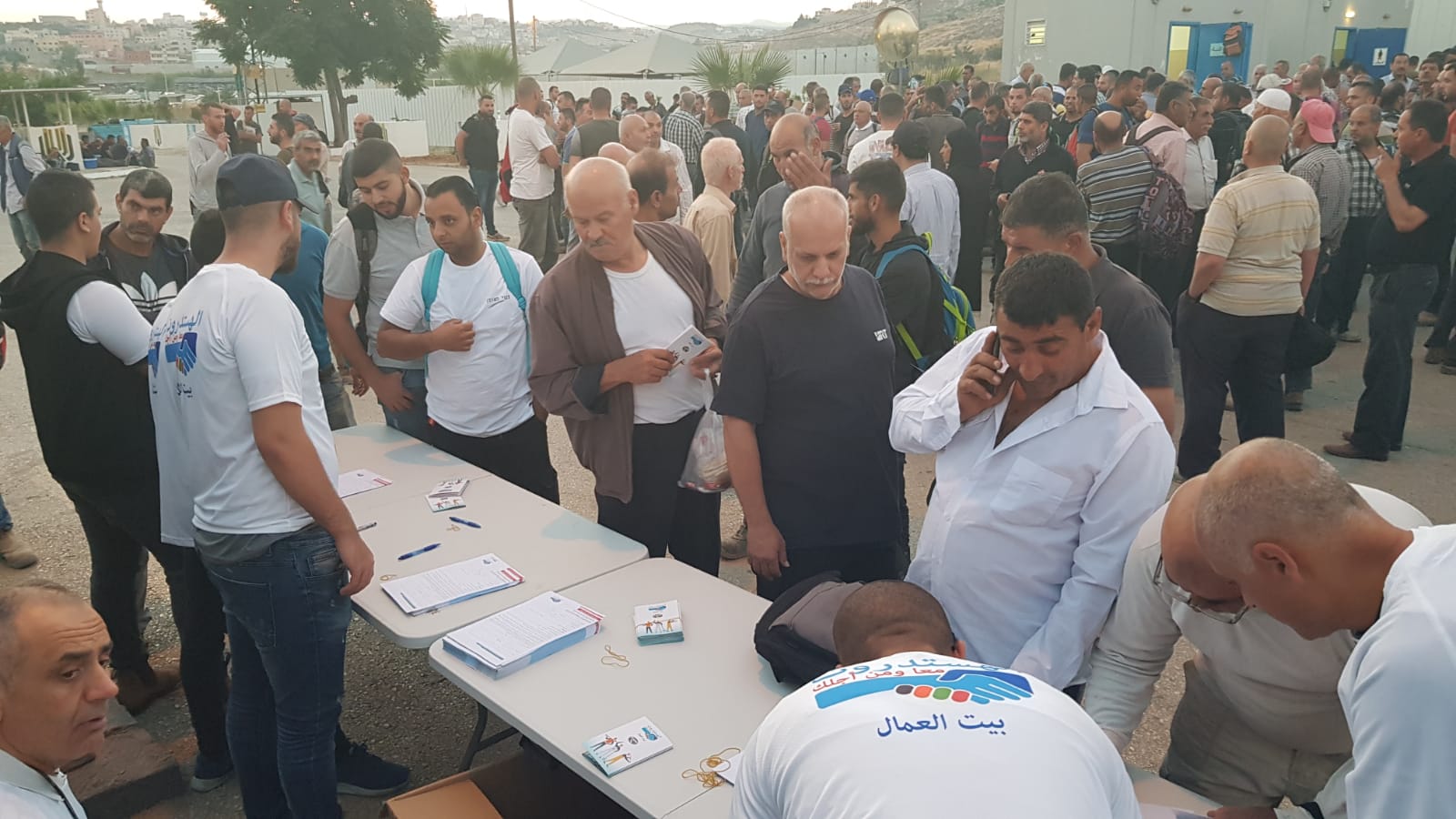Over 5,000 new Union members are always good news, but behind this bit of in-house bulletin lies a long and complex story. These new members, who joined Histadrut, Israel's largest union last month, aren't Israelis. In fact, these newly unionized workers are Palestinians who live in the West Bank, and enter Israel every morning to work. A recent campaign by the Histadrut attempted to reach out to one of the most disadvantaged sectors in the Israeli labor market, and the results were overwhelmingly positive.
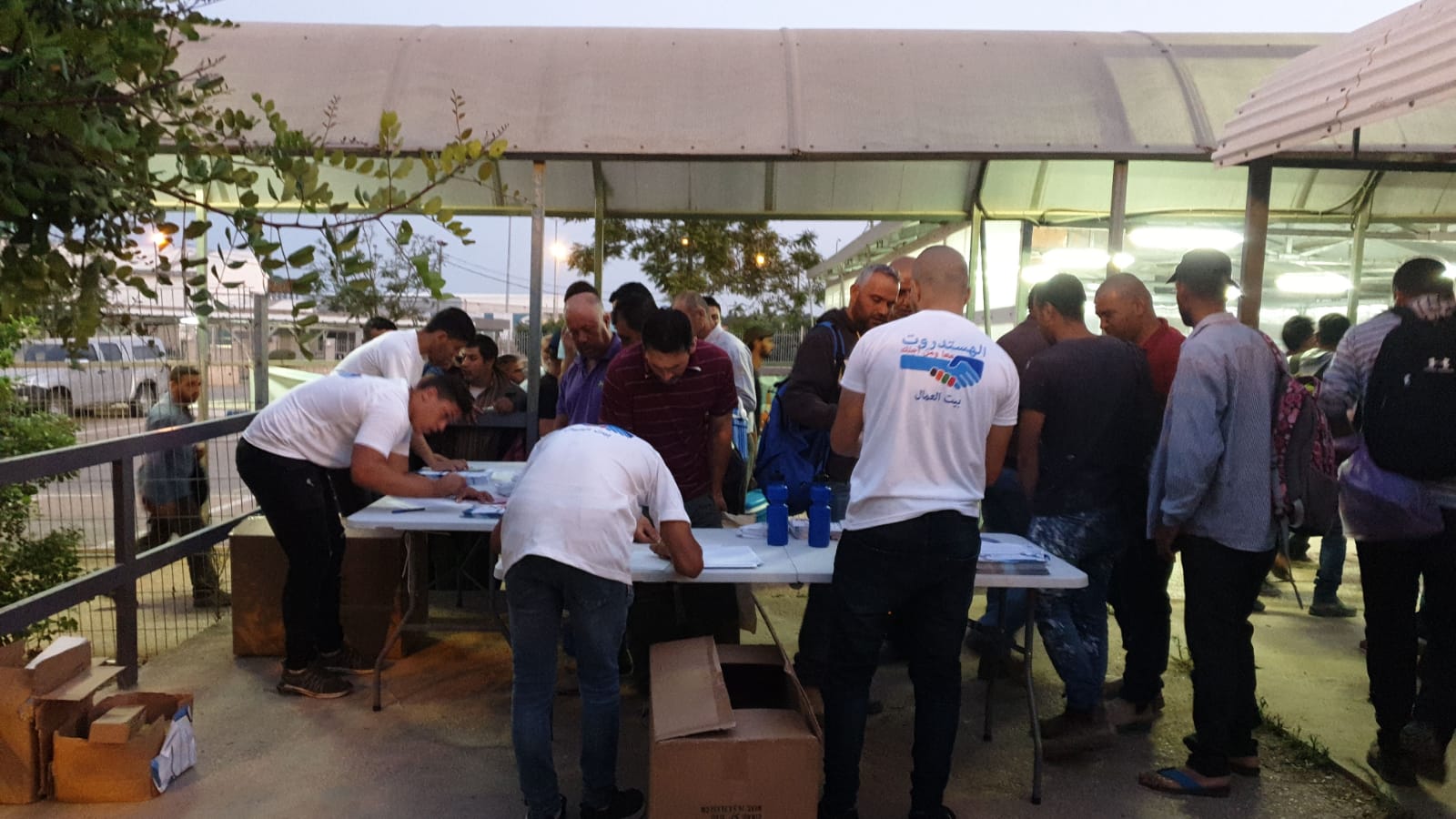
Over the course of ten days in mid-July, Arabic speaking Histadrut representatives met with Palestinian workers at the border crossings, offering advice and handing out pamphlets containing detailed information about workers' rights in Israel. The Palestinian workers received advice and instruction from the representatives on issues like wages, pensions, safety and welfare, as well as an invitation to contact the Arabic language union hotline. The Arabic language hotline was set by the Histadrut to offer guidance to Palestinian workers in Israel, who often speak very little Hebrew, and reported a spike in calls following the outreach.
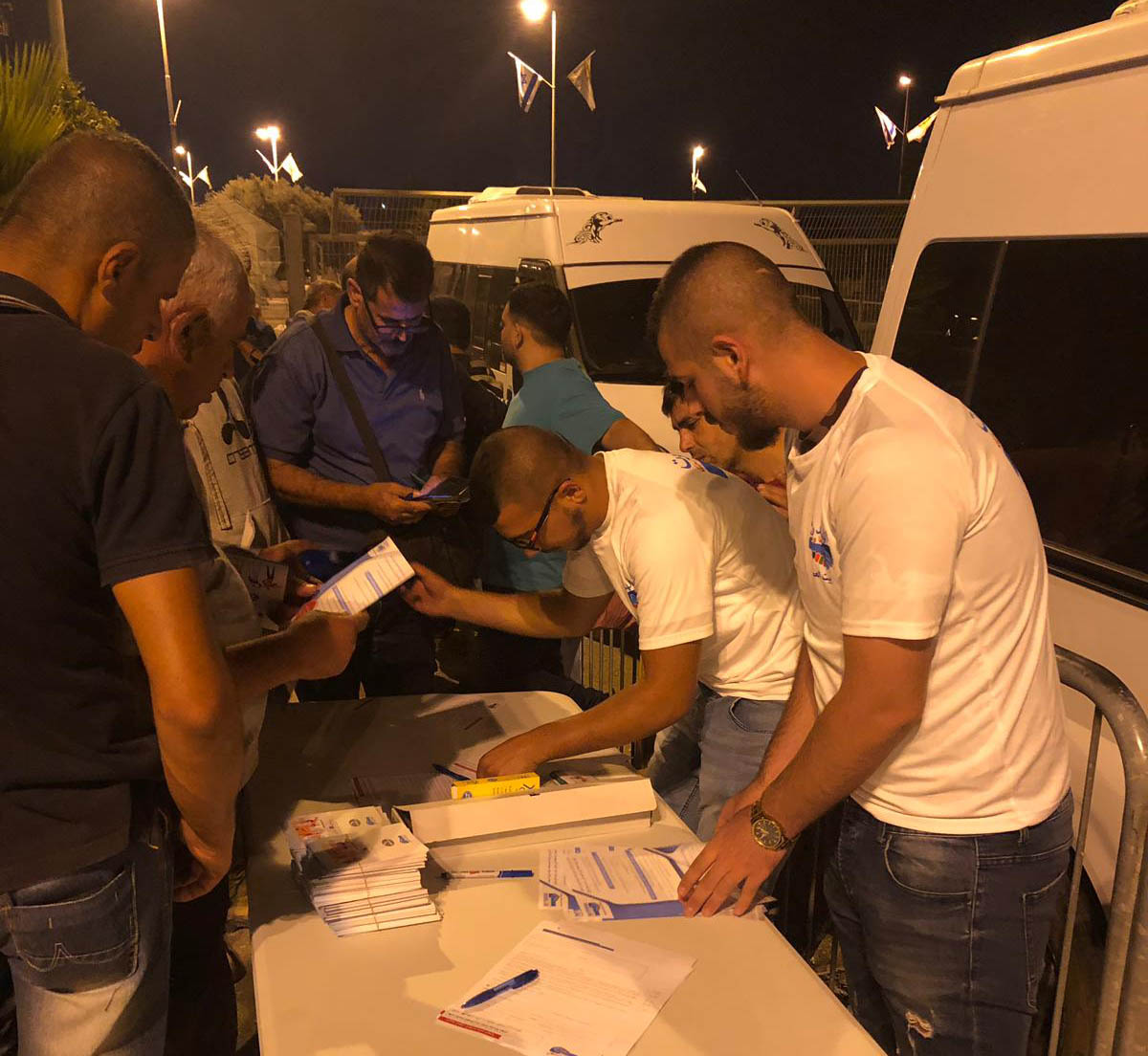
Histadrut threatened a general strike this year over demands to improve safety regulations in the construction industry, where a large proportion of Palestinian workers are employed. Tal Burstein, who stood charge of the Palestinian campaign, told 'Davar' that the decision to reach out to Palestinian workers in the industry came after repeated safety disorders were found in the Israeli construction sites recently. Many construction workers in Israel are Palestinians who commute across the border on a daily basis, and Burstein says he hopes to unionize as many of them as possible.
"We have to care for their rights, otherwise no one else will. A worker is a worker, no matter where he comes from, and he deserves his rights" says Nahad Sharkiya, who, apart from leading the campaign, works as a union rep in some of the largest Arab communities in Israel. According to him "Palestinians are the only ones prepared to do such difficult manual labor. In construction or agriculture, no Jews will do the job, all our construction workers are Palestinians".
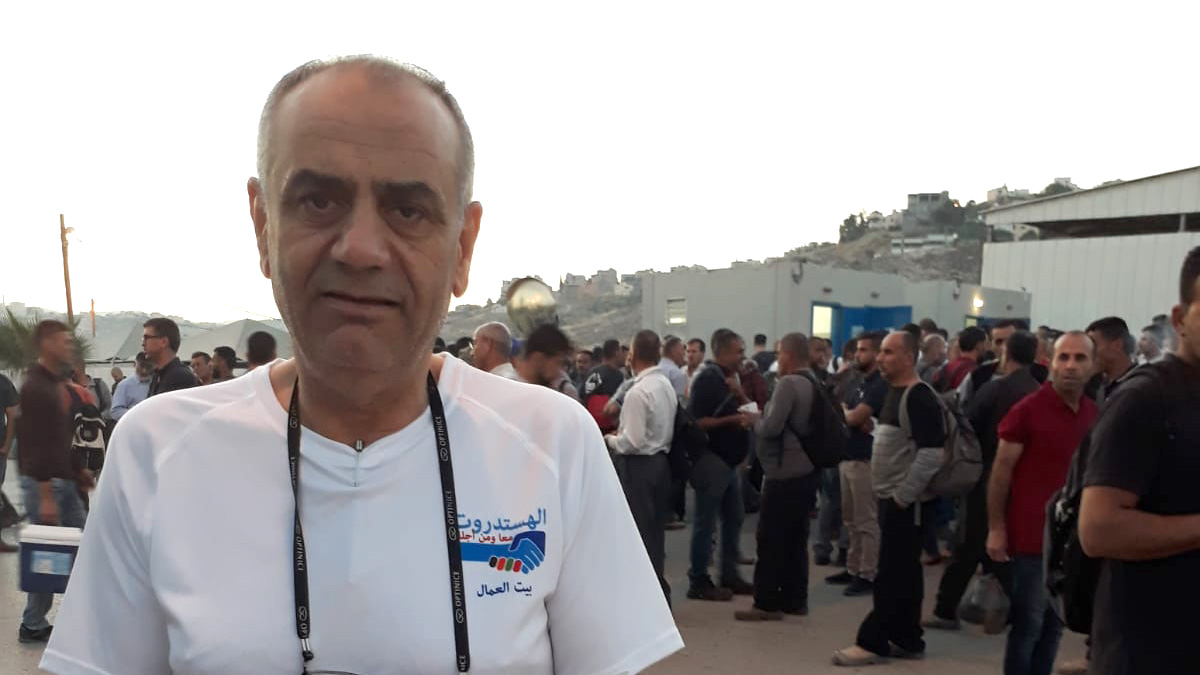
Wahil Abady who heads the Arabic language information center for Histadrut also participated in the campaign, and told 'Davar' that the Palestinian workers were excited and happy about the campaign. "These people need someone to take care of the problems they face at the workplace. Over 5,000 workers joined the union thanks to the campaign. We never dreamt of such high numbers. We were receiving so many questions that we had to open a special telephone line for them and an Arabic speaker answers their calls. This month we got 200 calls, that's more than we got all of last year".
Approximately 80,000 Palestinian workers cross the border into Israel every day, most of them through four heavily guarded border checkpoints. Most Palestinians working in Israel are employed in the construction industry, where even though low by Israeli standards, wages are substantially higher than the average wage in the West Bank. The relatively high wages and tight restrictions imposed by the Israeli authorities make the visas issued to Palestinian workers a rare asset in the Palestinian Territories. For security reasons, Israeli authorities issue visas mostly to older, married men with families back home who are deemed less likely to participate in terrorist attacks. The Palestinian Authority has no pension scheme, and this means that often the wages paid to a Palestinian working in Israel will go towards supporting his parents and his wife's parents, on top of his own family.
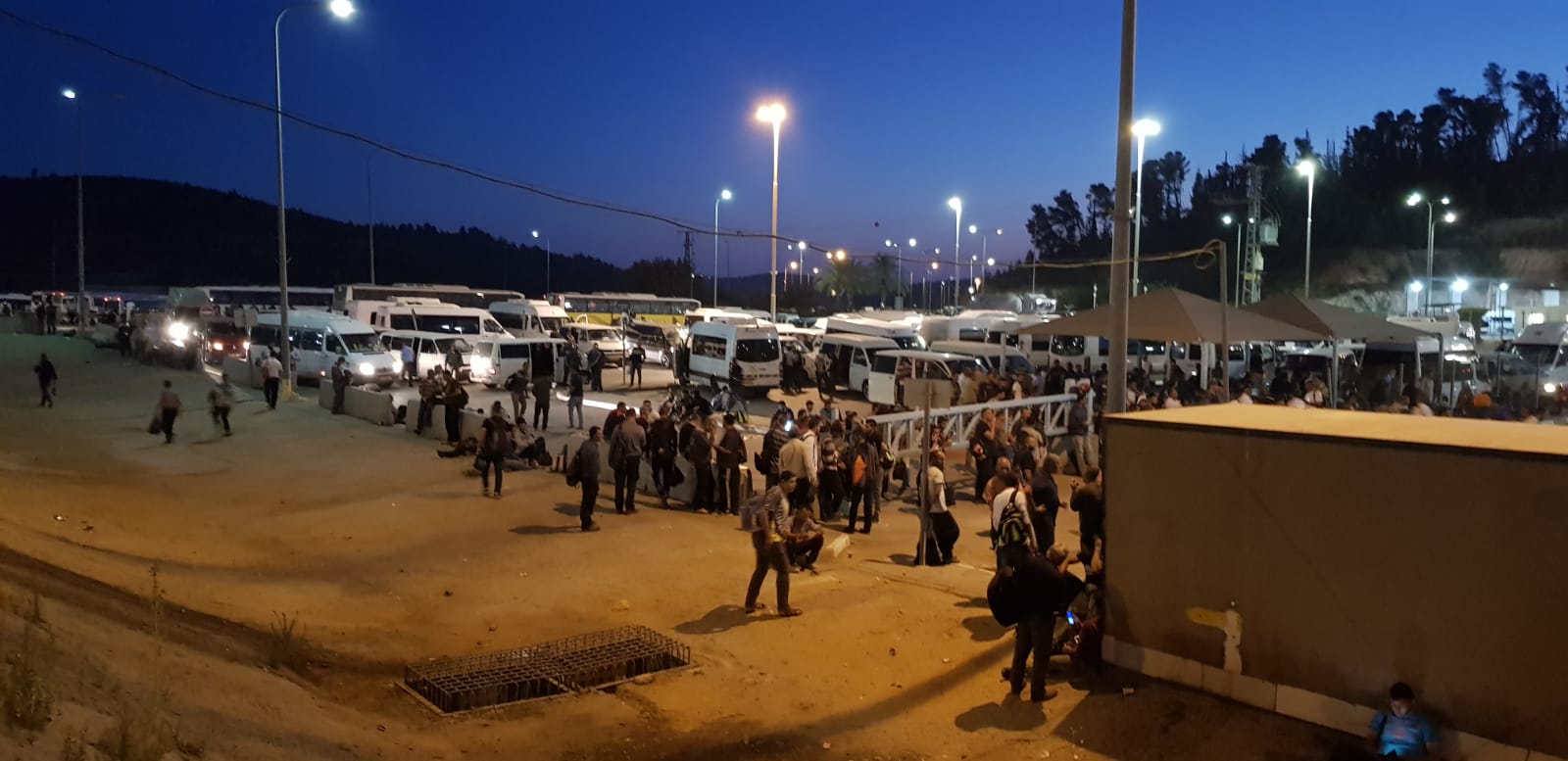
Histadrut activists met Palestinian workers at the border crossings, on their way into Israel before sunrise. "Our people were spread across ten of the border crossings, and over the course of ten days they got to speak to about 15,000 workers coming in from the Palestinian Authority" said Burstein. "The responses we got from the workers were amazing. We gathered a huge amount of information about breaching of labor laws and various other problems that the Palestinian workers face in Israel. We're dealing with a very serious problem" he said.
"No one cares if a Palestinian worker gets sick- or even dies"
Amihai Satinger is the head of the unionization division of the Histadrut, which played a major role in the recent Palestinian project. Satinger says that one of the greatest problems facing Palestinians working in Israel is the black market for entry visas. One of the reasons for this is the system Israel uses to issue working visas to Palestinians.
In fact, working visas for Palestinians are issued to the employer, and not the worker. This means that the permit, which costs the employer 1,300 NIS (380$) is given to the employer rather than the worker himself. The Israeli employer then organizes transport from the border crosses to the work sites, and is officially responsible for the workers welfare, until the contract ends.
But visas are often out of sync with the demand for workers. Israeli authorities issue visas for arbitrary periods that don't correspond to the contracts themselves. Employers will often let Palestinian workers go before their permit expires. In these cases, instead of informing the authorities, the Israeli employer illegally "sells" the permit to the Palestinian worker for a profit, for as much as 2,500 NIS (740$). The workers can then continue crossing the border to work, without having to apply for a new permit, which would meanwhile leave them without access to Israel.
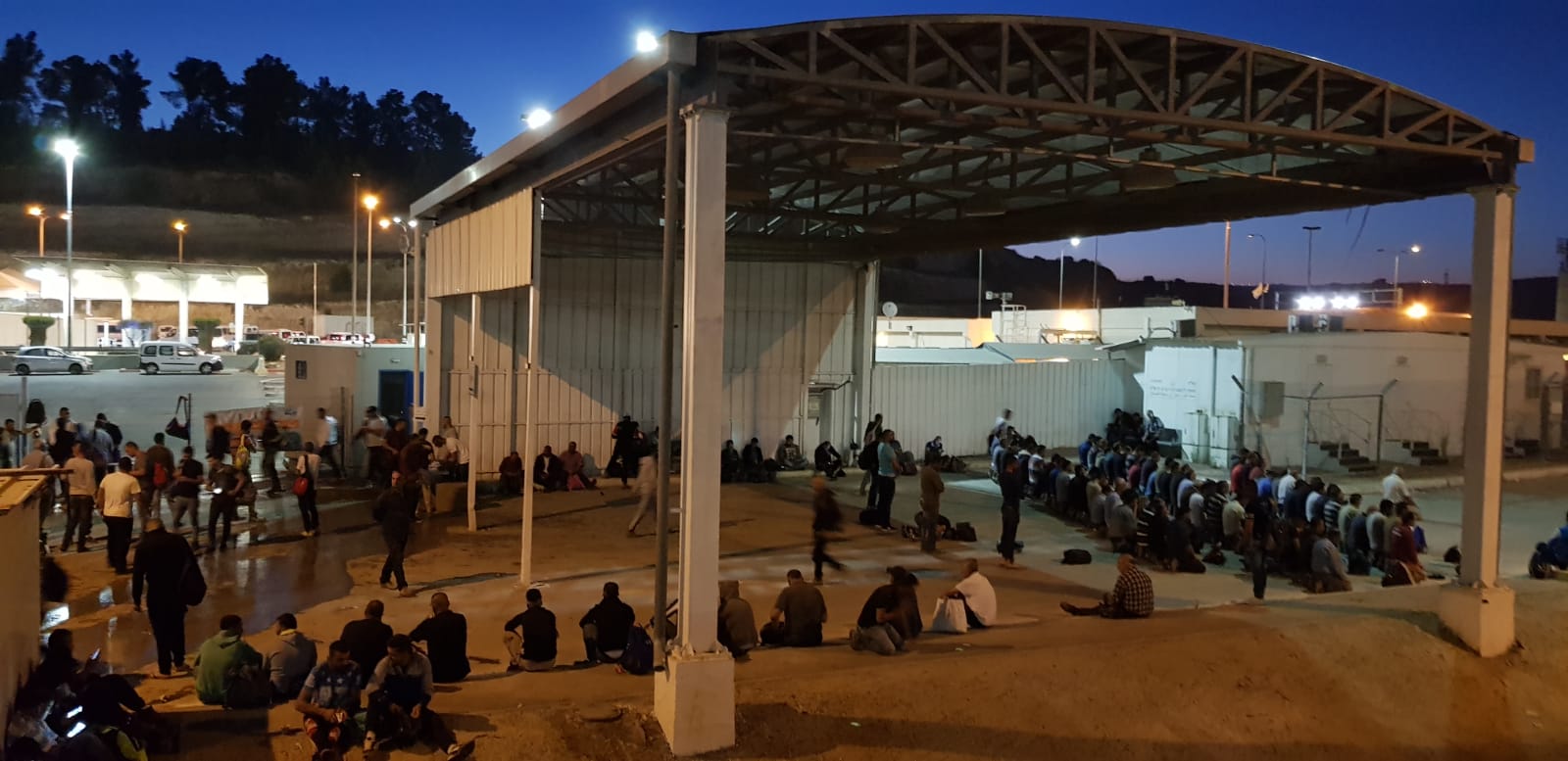
Palestinian workers are prepared to pay the exorbitant fees for their visas because of the higher wages in Israel, but this black market also has a darker side. Working for a new employer without reporting to the Israeli authority's means that the workers are in constant danger of losing their visa, a fact that employers use to their advantage. This means that employers hold considerable power over these workers, and often use it against them.
"In many cases employers will do anything to cheat workers out if their wages" says Satinger. "These Palestinian workers have no insurance, no pension payments, and on top of that in many cases they have to pay for their own transport from the border. Add the price they pay to get hold of the permit itself, and you get a worker earning 4,000 NIS (1,170$) when by law he should be earning 9,000 NIS (2,600$)".
This makes Palestinian workers in Israel particularly vulnerable" says Burstein. "They don’t get sick leave, so if they're sick they just don't get paid. The same goes for everything, they don't even get holidays off. Every time the work stops, for whatever reason, the Palestinian workers are the first to pay the price".
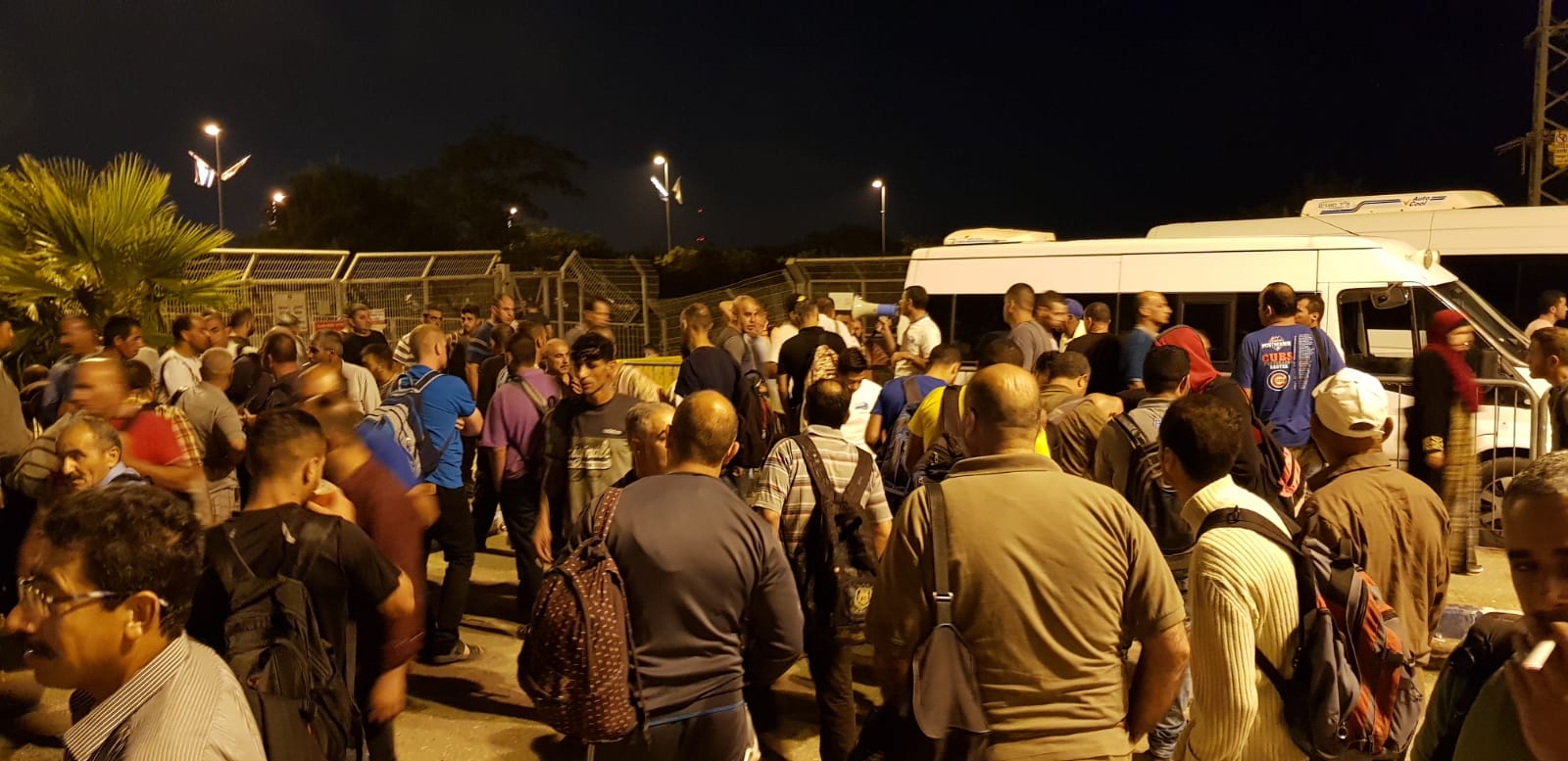
"These workers are completely invisible in Israel, no one cares about them. No one cares when they get sick. No one cares about what happens to them. Employers in Israel see Palestinian workers as totally replaceable, when one of them goes another comes along. No one cares when they get hurt. Nobody even blinks when they die" says Satinger.
When working without a valid permit, Palestinian workers know that they risk losing their visa if they seek medical treatment after getting hurt on the job. Many workers choose not to report injuries and continue working to avoid scrutiny by the authorities. "They know that nobody is going to be there for them. If the injury is so bad that the worker does eventually have to go to the hospital, he's not covered by Israeli national insurance. That way he has to pay for his treatment, even though it should be the employer doing that" says Burstein.
However, there is a positive side. "During the campaign we got to hear lots of stories from the Palestinian workers. They know about the Histadrut, and most of them have been in touch with us in the past. They know us because Histadrut fought to apply Israeli labour laws to Palestinians working in Israel a few years ago. That made a big difference".
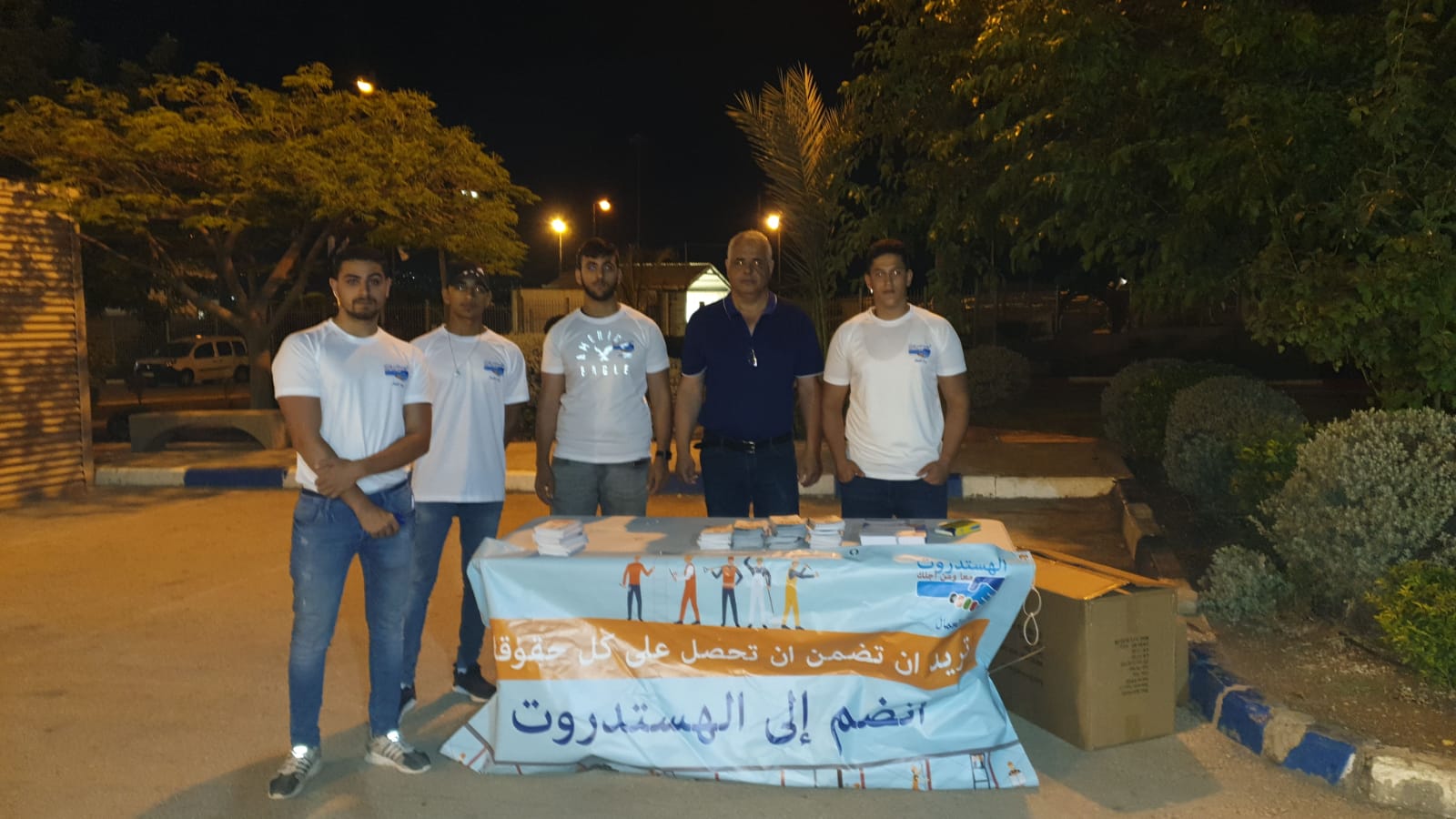
Dealing with the opposition on the Palestinian side
The issue of Palestinians working in Israel has long been a cause for concern for Israeli trade unions. Firstly as a humanitarian issue, but Histadrut activists also say it directly effects workers in Israel. "When a sector of the workers is allowed to be treated so poorly, it will eventually reach all other sectors of workers" says Burstein. Unionizing Palestinian workers is especially significant for Histadrut's efforts to tighten safety regulations in the construction industry. Improving safety and welfare issues in the construction industry has been an ongoing struggle in Israel in the past few years.
As part of the campaign, Histadrut had attempted to promote awareness to workers right on the Palestinian side, using newspaper advertising and banners in city centers across the West Bank. Even though it was aimed at raising awareness to Palestinian workers' rights, the opposition by some on the Palestinian side was surprisingly strong. The Palestinian Journalist Syndicate issued warnings to several media outlets not to publish any material by Histadrut, and the BDS movement joined in those efforts.
لنقاطع "الهستدروت" ونفشل محاولاته اليائسة في تلميع جرائمه ودوره في تعميق المشروع الصهيوني!تحذّر اللجنة الوطنية…
Posted by حركة مقاطعة إسرائيل -BDS Arabic on Sunday, June 2, 2019
Peter Lerner, Director General of the International Relations Division at Histadrut, says that it is important to remember that Histadrut works in close coordination with the PGFTU (Palestinian General Federation of Trade Unions). "This collaboration is based on long term understandings and has maintained an island of stability amidst the complex and challenging political reality". Lerner said that "every act on our side creates some kind of opposition on the Palestinian side, but we focus on what's good for the workers in Israel, whether they're Israeli, Palestinians or foreign workers". According to Lerner, "Thousands of new workers joining the union proves that unionized labor recognizes no borders".




